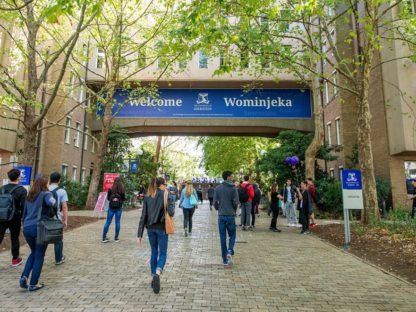With federal government transferring higher education funds to encourage college graduates to work in the most demanding jobs, college students will pay more than twice as much for studying humanities, law and business majors, while much less for studying nursing, teacher training, mathematics and science. This reform aims to provide higher education subsidies to college students in high-priority employment areas.

With government increase in the amount of subsidies, the cost of studying mathematics or agriculture at universities will be significantly reduced by 61 per cent, nursing and teacher training majors by 45 per cent, science by 23 per cent and clinical psychology by 46 per cent —— Students in these majors still need loans, but the upfront costs and later debt pressure will be greatly reduced.
Yet majors that find it hard to get a job directly pay a higher price —— and humanities students` academic degree costs rise by 113%. The data show that the demand for humanities majors in the job market is low, so law 、economics 、 management and business bachelor academic degree will be more expensive for students. law professional fees will be 28% more than currently.
A comprehensive reform of student self-financing and government subsidies announced on Friday will provide additional funding for 39,000 additional university places by 2023 and 100,000 additional places by the end of the decade cope with the surge in demand for higher education.
The cost of humanities and communication courses will more than double, and the cost of full-time study in one year is $14,500, up from $6684 this year. Fees for law and Commerce will increase by 28 per cent from A $11,155 per annum to A $14,500 per annum. As a result of the government`s reduced investment, it will take about A $43,500 to complete the full three-year course of the above-mentioned major.
However ," practical "majors such as teaching, nursing, psychology, English, language, mathematics and agricultural courses cost only $3,700 a year, down 46 to 62 per cent. costs of science, health, construction, environmental science, IT and engineering will be reduced by 20%, with a study fee of $7700 a year.
Speaking in Canberra, the National journalist of Education minister (Dan Tehan) said that government wanted to "motivate students" to think more about employment prospects when choosing college majors, thus helping more college graduates prepare for employment. "Students who choose to study hot academic degree in order to provide cheaper academic degree, in the area of expected employment growth will need to contribute more at their own expense. "
"It is common sense to be able to learn a major that can find a job at a cheaper price, which is a win-win situation for students... If Australia needs more educators, more health professionals and more engineers, we should motivate students to pursue these careers. "
"It doesn`t mean that fees are being relaxed, it does n` t mean that going to college is going to cost $100,000," he said, in the light of strong opposition to rising costs. "
"The cost of reading these academic degree in Australia is still cheaper than reading the same academic degree in similar countries, such as the United States and the United Kingdom ," he said. "
government predicts that 60% of students pay lower or unchanged tuition fees. If the fees for the major are increased, the current fees for students in school will remain unchanged, but if the fees fall, the fees for students in school will also fall.
The fees are divided by specific credits (unit) and subjects (subject) rather than applied to the whole academic degree, that is, students can choose cheaper elective courses from different subjects. A student with multiple academic degree will be less affected.
"Humanities students can still take courses in mathematics, English, science and information technology within the academic degree to reduce their total self-financing. ""We encourage students to embrace diversity and don`t see education as an isolated academic degree ."," Tyhan said
Recapitalized university funding will enable government to fund thousands of new college students as a result of the depressed economic and the increased demand for college entrance by 2023. He said the focus is on ensuring that universities train graduates who are economic needed after the outbreak.
Depending on private returns and national priorities, the Federal government will reclassify the amount of student self-expense earmarked for different subject areas into four levels. And the government subsidy will also be divided into four tranches, the lowest priority professional can get A $1100, and the highest priority can get A $27,000.
Mr tyhan also released new data on friday showing employment rates of more than 75 per cent of "employment-oriented" academic degree, graduates such as engineering, education and IT.

